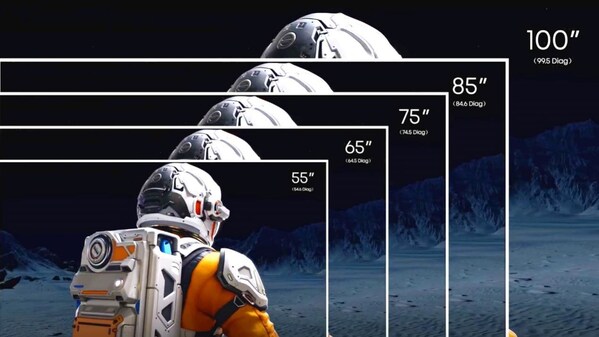On the 50th anniversary of the barcode being scanned for the first time, 22 industry champions – including marketplaces such as Alibaba.com, retailers like AS Watson and manufacturers like Procter & Gamble, are calling for the global adoption of QR Codes with GS1 standards.
Powered by GS1, the leading standards organisation behind the barcode, these QR Codes can give access to a wealth of product information easily accessible via smartphones – which is expected to completely revolutionise the consumer experience.
Since the first scan in 1974, the collaboration between retailers and manufacturers through GS1 has led to the widespread adoption of the original barcode. Today, this technology is the trusted universal method for product identification, with over 1 billion items carrying barcodes that are scanned more than 10 billion times daily, enhancing supply chain efficiencies worldwide. Today, global industry leaders are again uniting in the transition to QR Codes with GS1 standards, a 2D barcode also known as QR Codes powered by GS1.
“The first barcode scan forever changed how we buy and sell products. Fifty years on, industry champions have come together calling for the transition to QR Codes powered by GS1,” said Renaud de Barbuat, President and CEO of GS1.
“This collaborative effort is set to transform in new ways how we shop, eat, and live. We believe this marks the start of a second barcode revolution – making products more traceable and transforming the consumer experience, thereby unlocking the future of retail,” he said.
Revolutionising the consumer experience
Unlike traditional barcodes, QR Codes powered by GS1 can connect consumers to extensive amounts of product information to elevate their experience – including usage and recycling instructions, safety, nutritional information, and industry certifications.
“As our customers have become increasingly digitally-savvy, adopting QR Codes with GS1 standards inside is important in providing a seamless O+O (Offline plus Online) customer experience,” said Malina Ngai, Group CEO of AS Watson Group.
“These QR Codes enable customers to easily access detailed product information with a simple smartphone scan, empowering them to make more informed purchasing decisions. At AS Watson, we are delighted to support this transition, and I’m confident that it will unleash a wealth of new opportunities ahead,” she added.
With information easily accessible via smartphones, this opens a range of new possibilities for consumers, manufacturers, and retailers alike – giving access to all the information consumers need and desire, improving traceability, and driving efficiencies through the supply chain, while still enabling scanning at checkout.
Companies will need to evaluate their internal technology and processes to make the most of QR Codes with GS1 standards. Adding more detailed product information into QR Codes can be done gradually, allowing businesses to plan changes at their own pace.
QR Codes with GS1 standards should be widely adopted by the end of 2027
This industry initiative is a groundbreaking, collaborative effort to advance global standards for efficiency, safety, and sustainability across the retail and consumer goods industries.
The companies that have joined forces with GS1 are a combination of leading brand owners, retailers and marketplaces that have a combined market value of over USD 1.5 trillion. These companies operate in over 160 countries and reach billions of consumers worldwide – paving the way for the project’s success.
The goal of this collaboration is that by the end of 2027 QR Codes with GS1 standards should be widely adopted.
To achieve this, a coordinated effort is necessary between manufacturers and retailers: manufacturers should start implementing QR Codes with GS1 standards on product packages, while retailers should ensure their point of sale (POS) scanners are equipped to read the new barcodes.
The shift has already begun with the new technology being tested in 48 countries across the world, representing 88% of the world’s GDP.
The complete list of companies that have signed the global joint statement is the following: Alibaba.com (Taobao & Tmall Group), AS Watson, Barilla Group, Carrefour, 7-Eleven (CP ALL Thailand), Dr. Oetker, IGA, JD.com Group, Lidl International, L’Oréal, Master Kong (Tingyi Holding Corp.), Mengniu Group, Metro, Migros Ticaret A.S., Mondelēz International, Nestlé, The Procter & Gamble Company, Savencia Fromage & Dairy, The J.M. Smucker Co., Tsingtao Beer Group, WH Group (Henan Shuanghui Development Co.), and Yili Group.












